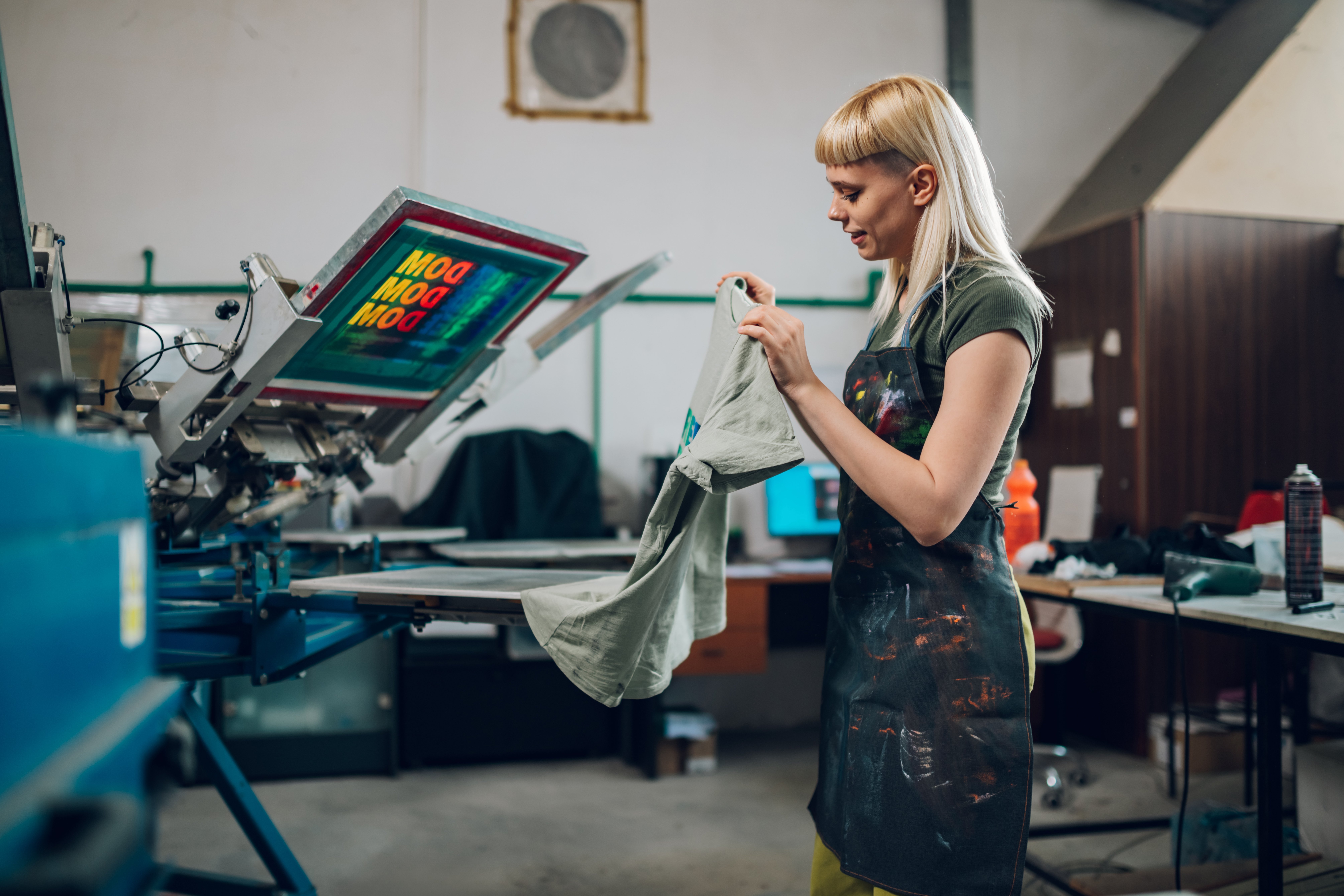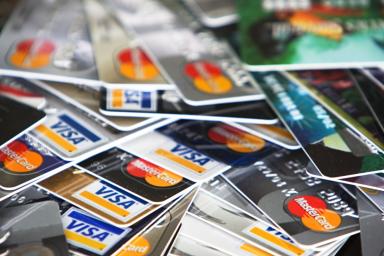Understanding copyright law
If you create something original – from a song or photo to an article or design – copyright prevents others from copying, republishing it or distributing it without your permission.
Most small businesses encounter copyright law when they want to use something that was originally created by someone else.
Using creative works such as a logo, photo, image or text without permission can infringe copyright law.
All businesses need to understand how to legally use copyrighted material.
If you break copyright law – even by accident – you can face large fines and even imprisonment.
What is Copyright?
Knowing about Copyright is essential for any business looking to use materials created by other people or businesses.
Original work that falls within one of the following categories is automatically protected by law as copyright material:
- literary such as books, newsletters, articles, song lyrics, manuscripts, manuals, leaflets, computer programs, and video games
- dramatic
- musical
- artistic work, including illustration and photography
- non-literary written work, such as software, web content and databases
- sound and music recordings
- film and television recordings
- broadcasts
- the layout of published editions of written, dramatic and musical works
Copyright in an original work doesn’t need to be registered in order for it to be protected.
However, if the copyright owner wishes, the copyright symbol © can be added to a copyright work together with their name and the year of creation.
This doesn’t add to the protection but does signpost to others that there is someone claiming copyright in the work.
If you are the owner of the copyright in an original work you can prevent others from doing any of the following things with it, without your permission:
- copying
- adapting or changing it
- republishing
- distributing copies, whether free of charge or for sale
- renting or lending copies
- performing, showing or playing it in public
- putting it on the internet
Doing any of these things without the copyright owner’s permission will be a breach or infringement of their copyright.
The copyright owner has both moral and economic rights in the copyright material.
Moral rights include the right to be identified as the creator or author of the work, and also to object to edits or distortions of the work.
Economic rights give control over how the work can be copied, distributed, rented, adapted, or broadcast.
How does copyright law affect small businesses
Owners of small businesses are most likely to encounter copyright law in the following situations:
- when they want to use something that was originally created by someone else such as a logo, photo, image, or written content
- when something is created by you, or on your behalf, for which you are the copyright owner
Using a copyrighted creative asset without permission from the copyright owner is likely to be an infringement of their copyright.
If you or your staff infringe someone else’s copyright – even by accident – you can face claims for significant damages from the copyright owner in the civil courts, as well as large fines and possibly even imprisonment in the criminal courts.
There are ways to use someone else’s copyright material without infringing it.
Understanding how you can do this is important for all businesses, including small businesses.
For example, a photographer may give a small business permission (usually in the form of a written licence) to use photos the photographer has taken of its products in the small business’ promotional material, but the licence would not necessarily extend to allowing the small business to sell or allow others to use those photos.
Alternatively, the small business could be given permission by a stock library it to use the licensed image for specific purposes only.
In both examples, while the business is licensed to use the photo, the photographer or stock library will still own the copyright in it.
Merely allowing a business to use the photo does not transfer copyright ownership.
Who owns copyright?
In most cases, the person or company that created the work exclusively owns the copyright.
They are referred to as the ‘first owner of copyright’ under the 1988 Copyright, Designs and Patents Act.
There are exceptions, however. If work is produced as part of employment – such as by a member of your staff while performing duties as part of their job – then the copyright owner is usually the employer rather than the individual who created the work.
Graphic design companies, photography studios, and copywriting agencies would own the copyright of the work their staff created, for example.
Just like any other asset, copyright may be transferred or sold by the copyright owner to another party.
Freelance or commissioned work will usually belong to the author of the work.
However, many freelancers are willing to transfer copyright as part of a contract.
This is essential if a freelance designer is creating a brand identity or marketing materials.
A business commissioning an original work should take legal advice to ensure that all copyright is transferred to the business as part of the contract procuring the work.
The author of the work will also need to waive their moral rights to the work as well.
How long does copyright last?
In the UK, most creative output is protected for the life of the author plus 70 years.
However, some types of copyright material last for less than 70 years.
The 70-year period runs from the end of the calendar year in which the last remaining author of the work dies.
This means that many materials today – from articles and images to photos and songs – are currently copyrighted and will remain so for decades.
When copyright expires, the work falls into the public domain.
That means that it is deemed public property and can be used by anyone.
People and businesses are free to modify, use, and even sell work that is in the public domain.
Always seek legal advice before making use of copyright material.
How to check if something is copyrighted
A crucial question for any business using creative material is whether it is copyrighted.
Not knowing isn’t a defence – your business can still infringe copyright law even if it used copyrighted material unknowingly.
There is no copyright registration system in the UK, making it difficult for businesses to look up details of any copyright owner.
It’s possible to search the US Copyright Register but that is limited.
The best bet is to either commission material from the original creator – such as a freelance photographer who is working for your business on commission – or to buy materials from reputable sources such as a stock image library.
When considering using content online, look for a copyright icon or examine the metadata of digital images as this may include details of the photographer, for example.
However, copyright may still exist in material even if these are absent.
Tools such as Google Image Search make it easier for copyright owners to search for unauthorised usage of their work and issue an invoice or even legal proceedings.
What happens if you break copyright law?
Any individual or business that infringes copyright can face legal action.
Infringement is usually treated as civil claim leading potentially to an award of damages against the infringer.
However, in certain circumstances, it can be prosecuted as a criminal offence, with fines, damages and even imprisonment awarded by a criminal court.
If found guilty of copyright infringement in a magistrate’s court, your business could be fined up to £50,000 and you could face a jail term of up to six months.
If the case reaches a Crown Court, fines can be unlimited and the maximum sentence up to ten years’ imprisonment.
The scale of the infringement is relevant to the potential consequences.
Your business may also be investigated by Copywatch, which ensures copyright compliance on behalf of the Copyright Licensing Agency.
In some cases, you may be able to arrive at a compromise before legal action reaches the courts.
For example, authors and creators might be willing for you to pay a retrospective fee for the use of their work and give them credit on the work.
Your legal costs and the disruption to your business of defending the claim and/or having to source non-infringing material in the meantime can be very expensive.
What is fair usage?
Not all copyright infringement results in a penalty.
In the UK, there is the defence of fair usage – which is also known as fair practice, free use, or fair dealing.
This allows you to legally use copyrighted work without having permission in a few exceptional cases and this covers most copyrighted materials apart from printed music.
Fair use exceptions include using copyrighted material for research, teaching and private study, as well as for criticism, review or quotation.
You can also use copyrighted material when reporting on current events in the media – aside from photos – and you can also use copyright material in parody.
However, fair use isn’t well-defined and is a difficult defence to rely on.
Tests would include whether the author suffered a financial or reputational loss as a result of the use – even if it was fair – so the best bet is to ensure you obtain permission first.
Tips to avoid breaching copyright law
By ensuring you have good working practices your business can reduce the risk of infringing copyright:
Education – Ensure staff are aware of copyright law and its implications.
Processes – Put processes in place internally to ensure appropriate copyright permissions have been obtained before using external work.
Contracts – Ensure contracts with freelancers and agencies assign copyright ownership to your business for materials they create for you.
Create your own work – Make sure work you create is original and then you’re free to use it as you wish.
Buy from reputable sources – Buy materials that properly license your use such as images from stock libraries, fonts from typeface foundries and software from the manufacturer. Ensure the licence you buy is suitable for the usage you plan for the material.
Learn more about entrepreneurship with our free online courses in partnership with the Open University.
Our free Learn with Start Up Loans courses include:
Plus free courses on finance and accounting, project management, and leadership.
Disclaimer: The Start -Up Loans Company makes reasonable efforts to keep the content of this article up to date, but we do not guarantee or warrant (implied or otherwise) that it is current, accurate or complete. This article is intended for general information purposes only and does not constitute advice of any kind, including legal, financial, tax or other professional advice. You should always seek professional or specialist advice or support before doing anything on the basis of the content of this article.
The Start-Up Loans Company is not liable for any loss or damage (foreseeable or not) that may come from relying on this article, whether as a result of our negligence, breach of contract or otherwise. “Loss” includes (but is not limited to) any direct, indirect or consequential loss, loss of income, revenue, benefits, profits, opportunity, anticipated savings, or data. We do not exclude liability for any liability which cannot be excluded or limited under English law. Reference to any person, organisation, business, or event does not constitute an endorsement or recommendation from The Start-Up Loans Company, its parent company British Business Bank plc, or the UK Government.
Your previously read articles
Apply for a Start Up Loan
We've helped over 100,000 businesses get off the ground with a Start Up Loan. Can we help make your business dream a reality?
Find out more for a start up loan
Essential guide to starting a business
Our Essential Guide to Starting a Business is your roadmap to turn your business idea into a reality.
Across 12 chapters, you'll discover a wealth of information designed to empower and equip you with the knowledge needed to successfully launch and manage your new venture.
Sign up for our newsletter
Just add your details to receive updates and news from Start Up Loans
Sign up to our newsletter


